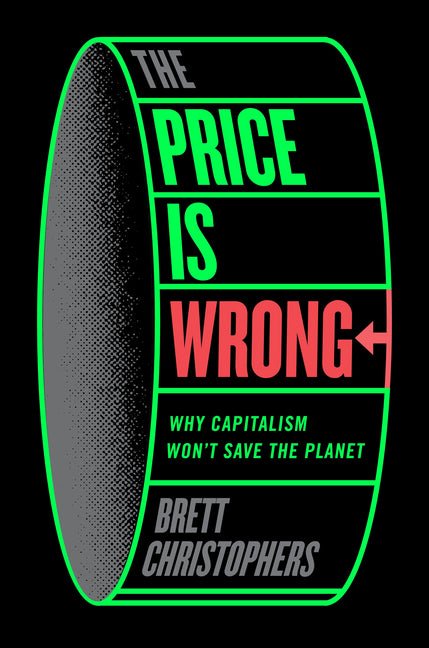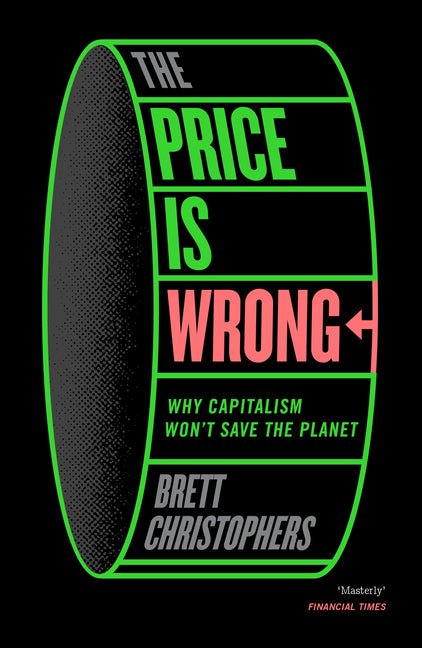Verso
The Price Is Wrong: Why Capitalism Won't Save the Planet
Couldn't load pickup availability
"Standard theories of the causes of climate breakdown will not survive this book. Readers will be all the wiser."
--Andreas Malm, author of How to Blow Up a Pipeline
Why the market will never solve the climate crisis
What if our understanding of capitalism and climate is back to front? What if the problem is not that transitioning to renewables is too expensive, but that saving the planet is not sufficiently profitable?
This is Brett Christophers' claim. The global economy is moving too slowly toward sustainability because the return on green investment is too low.
Today's consensus is that the key to curbing climate change is to produce green electricity and electrify everything possible. The main economic barrier in that project has seemingly been removed. But while prices of solar and wind power have tumbled, the golden era of renewables has yet to materialize.
The problem is that investment is driven by profit, not price, and operating solar and wind farms remains a marginal business, dependent everywhere on the state's financial support.
We cannot expect markets and the private sector to solve the climate crisis while the profits that are their lifeblood remain unappetizing. But there is an alternative to providing surrogate green profits through subsidies: to take energy out of the private sector's hands.
An essential intervention, The Price Is Wrong is as politically far-reaching as it is factually illuminating.
Share
Book Details
ISBN:
9781804292303
EAN:
9781804292303
Binding:
Hardcover
Pages:
432
Authors:
Brett Christophers
Publisher:
Verso


Fascinating insight into power markets and what needs to be done to enable authentic transition. Clearly articulated. Comprehensive analysis. Highly recommend
Esse é bom, leitura crítica de qualidade
Title says it all. Real robust investigative reporting and easy to digest distillation of the complex financial regimes underpinning renewal programs.
The book is very well written and well documented with extensive footnotes
A lot of books don’t have the content to justify their length. However, add some historical context, colourful characters and interesting tangents and they’re actually quite readable. This is not one of those books. Rather, much like a student desperately trying to stretch a 20,000 word dissertation into a 100,000 word thesis, the author has chosen verbosity to meet the word count. Points are expanded-upon, repeated, elucidated, summarised, played back, recapped – you get the point.Rather than write ‘see below’ we’re treated to, ‘a separate section of this chapter – the one following this one – is given to unpacking it’.Virtually meaningless additions abound, e.g. ‘All else being equal (which of course it almost never is – but we can ignore that for the time being for the sake of illustration), etc. etc. etc. There are much, much worse examples but I can’t be bothered to write them out.In fact, I don’t think there is pronoun in the book. Why would there when you can simply restate in full exactly what was written in the previous sentence and the one before that.This is a pity, as there is an interesting and well-supported argument somewhere in this never-ending verbiage. With a better editor and extensive rewrite it could have been a good book. As it is, the unbearable writing obscures all.


